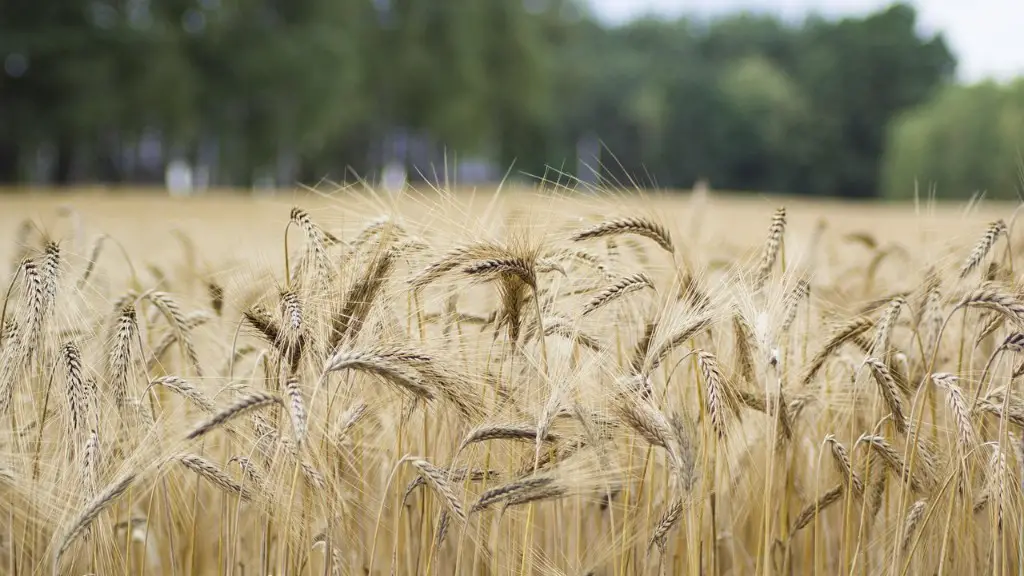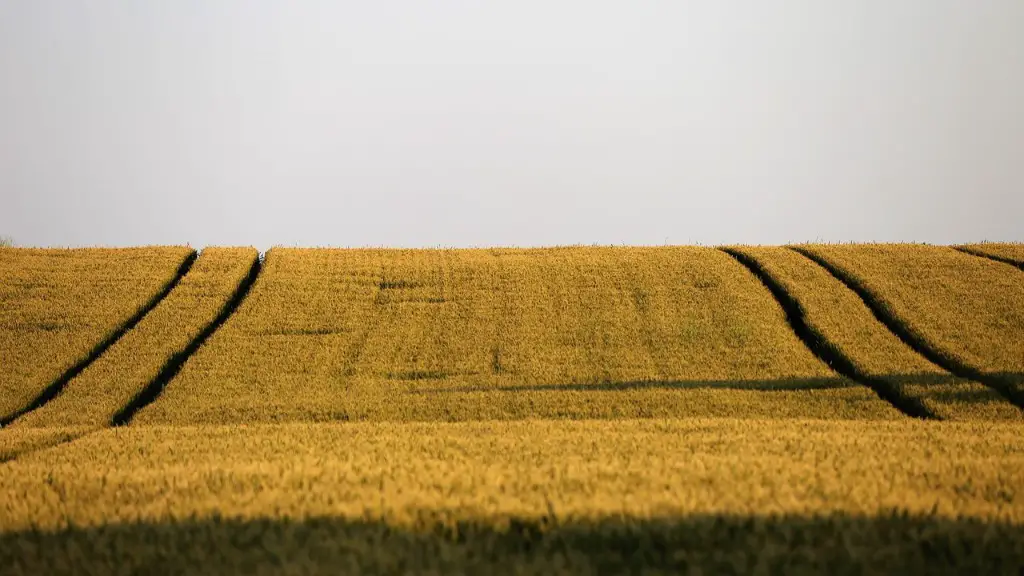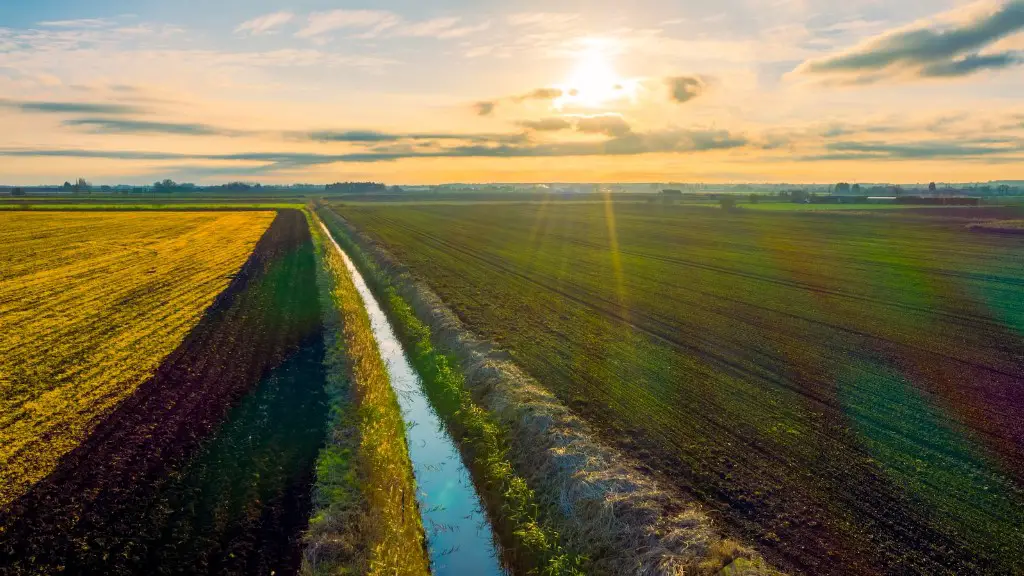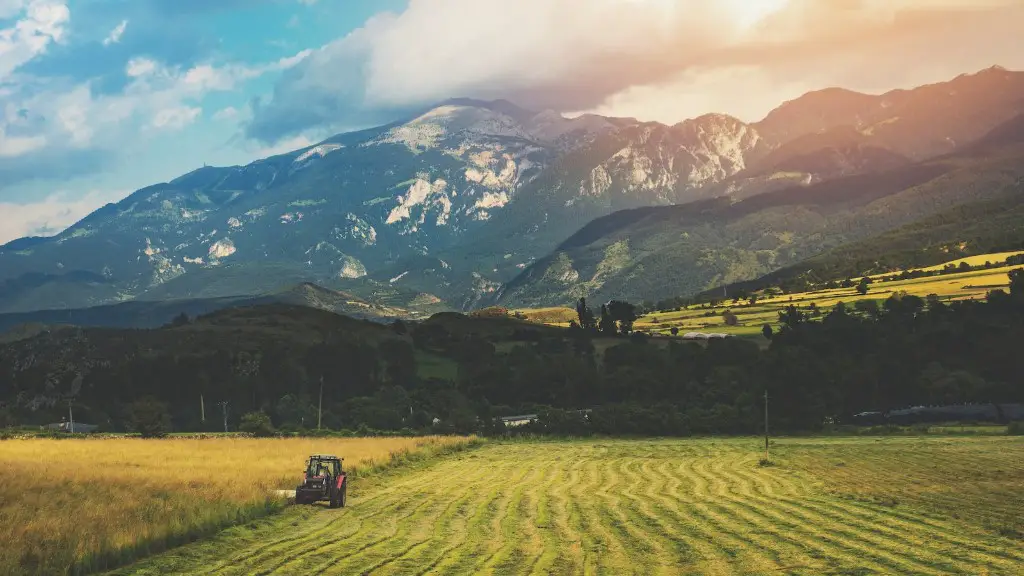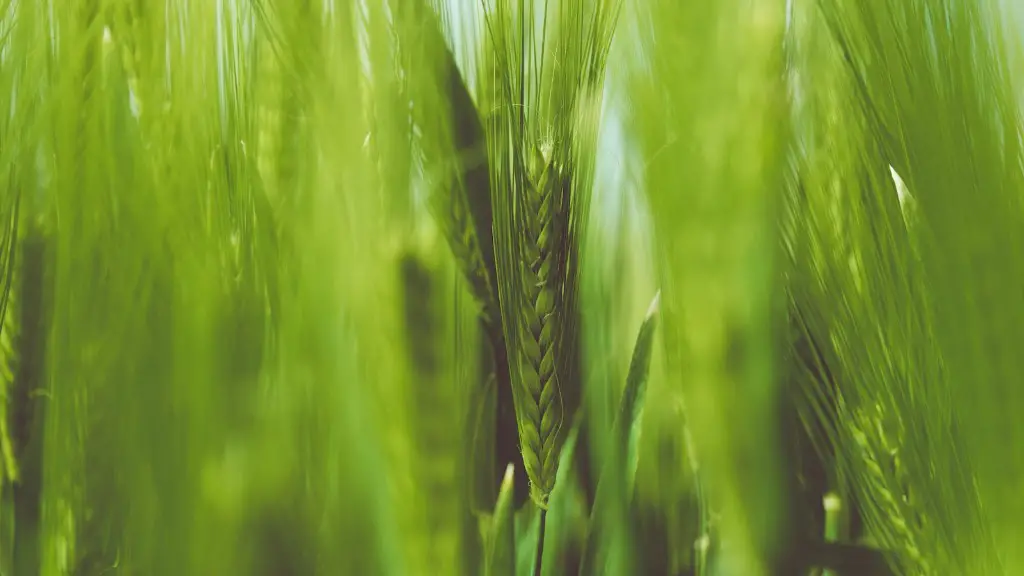In many parts of the world, salt water is a readily available resource for crop irrigation. Using salt water for agriculture can have some benefits and drawbacks that should be considered before implementation. Some crops are more tolerant of salt water irrigation than others, so it is important to choose the right crops for your area. Salt water can also increase the risk of soil erosion and plant diseases. However, when used correctly, salt water can be a valuable resource for farmers.
Salt water for agriculture can be used in a number of ways. One way is to use it as a fertilizer. Another way is to use it to irrigate crops.
What crops can be watered with salt water?
The researchers found that certain varieties of potatoes, cabbage, tomatoes, carrots, beetroots and strawberries have high salt tolerance. Brackish water was also found to be suitable for irrigating oats, barley, onions and sugar beet. Sal-Far Saline Farming can be used to cultivate these crops in areas with high salinity levels. This type of farming can help to improve the yield and quality of these crops.
Using seawater for irrigation is a possible solution; however, because it is saline, it is not without problems. Plant roots can absorb the water when it is moderately saline, but they have to work hard to do so. If the water is too saline, water will move out of the plants to the soils.
Do plants grow better with salt water
Saltwater can inhibit plant growth and photosynthesis by causing the plant to absorb too much salt. This can be a problem in areas where the soil is already salinated, or where there is a high concentration of salt in the water. Plants may be able to adapt to some degree of saltwater, but it is still best to avoid it if possible.
Did you know that ocean water is perfect fertilizer? Most people think seawater kills plants Right out of the ocean it does, just like any other fertilizer that is not diluted properly; but delivered in the proper concentration seawater is actually an amazing fertilizer.
Seawater is full of nutrients that plants need, including nitrogen, phosphorus, and potassium. And because it is already in a liquid form, it can be easily absorbed by plants.
Seawater fertilizer can be used on all types of plants, including fruits, vegetables, flowers, and even lawns. It is especially beneficial for plants that are grown in sandy or salty soils, as it can help to improve drainage and prevent soil erosion.
Can farmers use salt water?
The seashore mallow is a salt-tolerant plant that could thrive with salt water irrigation. This plant has the potential to become a cash crop, as it is native to the coastal marshlands of the southeastern United States.
Salt water can be damaging to plants because it can accumulate chloride and sodium ions that can be toxic to the plants. The ions can also create a kind of chemical drought where water in roots can diffuse out into the saltier soil. Both of these effects can be damaging to the plants.
Why would a farmer use salty water for irrigation?
Saline agriculture is the cultivation of crops on salt-affected soils and/or using salt or brackish water for irrigation water. This strategy saves fresh water, which is a scarce resource on this planet, and even more so in those areas generally affected by salinization.
Saline agriculture can be practiced using traditional methods and/or using modern technology. Traditional methods include growing crops in salt-affected soils and using salt or brackish water for irrigation. Modern technology includes using reverse osmosis and/or other desalination methods to provide fresh water for irrigation.
The main challenges with saline agriculture are managing the salt content of the soils and irrigation water, and ensuring that the crops grown are tolerant to salty conditions. However, with proper management and technology, these challenges can be overcome and saline agriculture can be a viable option for producing food in salt-affected areas.
Salts can have a negative effect on turfgrass health by causing the plant to lose water through osmosis. Water will move from the plant tissue, which has a lower concentration of salt, into the soil, which has a higher concentration of salt. This can cause the plant to wilt and eventually die.
What would happen if you applied saltwater to a plant
Watering plants with salt water will cause the plant to dehydrate and eventually die. This is because the water is too dense for the plant to perform osmosis, which is how plants normally absorb water from the soil.
If the level of salts in the soil water is too high, it may result in dehydration of the plant, causing yield decline or even death of the plant. Crop yield losses may occur even though the effects of salinity may not be obvious.
Is salt water good for your trees?
If you want your plants to thrive, it’s best to avoid watering them with saltwater. Saltwater can dehydrate plants, and even if they don’t dehydrate, they may be poisoned by an excess of salt in their systems.
Ocean water is a great way to improve the condition of acidic soils. The oxygen in the water helps to enrich the land and renew its mineral richness. Adding ocean water to your garden also helps to boost the amount of life and beneficial microbe activity within the soil.
How do you make salt fertilizer
Epsom salt is a natural source of magnesium and sulfur, two important nutrients for healthy plant growth. Dissolving Epsom salt in water makes a simple and effective fertilizer for your plants. Just be sure to shake the solution thoroughly before using it, and water your plants with it once per month during the growing season.
The ocean is a big, blue body of water that is salty. This is because the ocean has a lot of salt dissolved in it. When water evaporates, the salt is left behind. The ocean has a lot of salt because it is very old and has had a lot of time to evaporate.
The problem with taking some of the ocean and moving it into parched territory is that the salt would make the soil unsuitable for growing crops. Salt also kills many other living creatures, so it would not be good for the environment either.
Why salty soil is not very good for agriculture?
Salts can have a negative impact on crops in a number of ways. One is that they can reduce the amount of water that roots can take up from the soil. This can stunt growth and reduce yields. Additionally, some salts can be toxic to plants in high concentrations. This can kill plants or make them more susceptible to disease and pests.
Farming withSalt-Water Is Possible
As saline water cannot be used for irrigation, farm fields close to the seashore are lost to agriculture. But a farm in Netherlands has managed to grow healthy and tasty vegetables in soil irrigated with salt water.
The farm, called Zoueida, is located on the coast of the Netherlands. It grows a variety of crops, including lettuce, tomatoes, and spinach.
To make the salt water safe for irrigation, the farm uses a reverse osmosis system. This system removes the salt from the water, making it safe to use on the plants.
The farm has been able to successfully grow crops in salt water for years, and the vegetables are healthy and delicious. This proves that it is possible to farm in salt water, and that’s good news for farmers who live near the coast.
Conclusion
If you are using salt water for agriculture, you will need to first remove the salt from the water. This can be done by boiling the water and then cooling it, or by using a water filtration system. Once the salt has been removed, you can then use the water for irrigation or for any other agricultural purpose.
The most common way to use salt water for agriculture is to irrigate with it. This is because salt water is a very effective way to improve the drainage in sandy soils. However, it is important to note that salt water can also be very harmful to plants if it is not used correctly.

